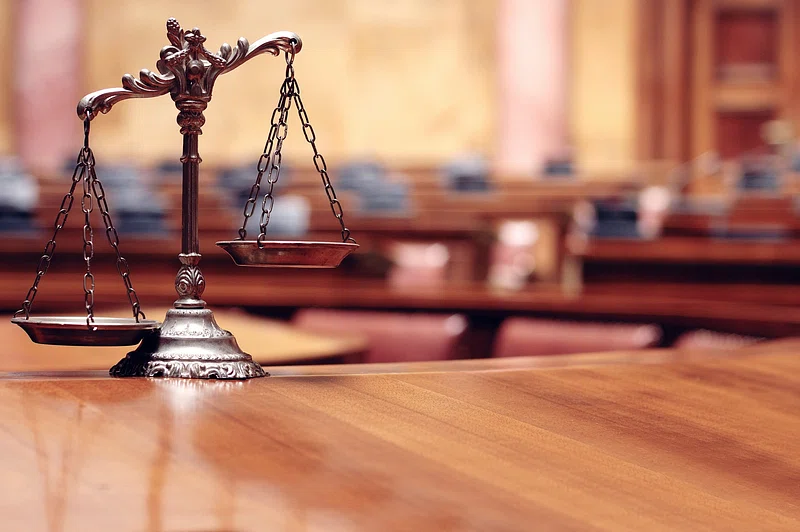- Advising Clients: They provide clients with expert advice on whether arbitration is the best method for resolving their dispute, considering factors such as cost, time, and the nature of the conflict.
- Drafting and Reviewing Contracts: Arbitration lawyers draft arbitration clauses in contracts and review existing agreements to ensure they are clear and enforceable. They also help in the selection of arbitrators and the arbitration venue.
- Representing Clients in Hearings: They present evidence, examine witnesses, and make legal arguments on behalf of their clients during arbitration hearings. This requires a deep understanding of the rules of evidence and the specific procedures of arbitration tribunals.
- Negotiating Settlements: Often, arbitration lawyers engage in negotiations to settle disputes before they reach the hearing stage, striving to achieve favorable outcomes for their clients.
- Enforcing Arbitration Awards: After a decision is rendered, arbitration lawyers assist in the enforcement of the arbitration award, which may involve court proceedings if the losing party does not comply voluntarily.
In today’s complex legal landscape, arbitration has emerged as a preferred method of dispute resolution, offering an alternative to traditional litigation. This trend has led to an increasing demand for specialized arbitration lawyers who possess the skills and knowledge necessary to navigate the intricacies of arbitration proceedings. This article delves into the role of arbitration lawyers, the advantages of arbitration, the arbitration process, and the qualifications that define a proficient arbitration lawyer.
Understanding the Role of an Arbitration Lawyer
An arbitration lawyer is a legal professional who specializes in representing clients in arbitration proceedings. Unlike traditional courtroom litigation, arbitration is a private process where disputes are resolved by one or more arbitrators, whose decision is usually binding. Arbitration lawyers play a crucial role in advocating for their clients, ensuring that their rights are protected, and guiding them through the often complex arbitration process.
Key Responsibilities of Arbitration Lawyers
Arbitration lawyers have a range of responsibilities, including:
Advantages of Arbitration
Arbitration offers several advantages over traditional litigation, making it an attractive option for many parties involved in disputes.
Confidentiality
One of the most significant benefits of arbitration is the confidentiality it affords. Unlike court proceedings, which are typically public, arbitration is a private process. This confidentiality can be particularly valuable in commercial disputes where parties may want to avoid public disclosure of sensitive information.
Speed and Efficiency
Arbitration can often be faster than traditional litigation. Court cases can drag on for years due to backlog and procedural delays, whereas arbitration can be scheduled more flexibly, allowing for a quicker resolution.
Expertise of Arbitrators
Parties in arbitration have the opportunity to select arbitrators with specific expertise relevant to their dispute. This is particularly advantageous in specialized fields such as construction, intellectual property, or international trade, where technical knowledge can be crucial to the resolution of complex issues.
Cost-Effectiveness
While arbitration can sometimes be expensive, it is often more cost-effective than litigation, especially when considering the potential for faster resolution and the avoidance of lengthy appeals processes.
The Arbitration Process
Understanding the arbitration process is essential for those considering this form of dispute resolution. The process generally follows a series of well-defined steps:
1. Initiation
The arbitration process begins when one party files a notice of arbitration, signaling their intent to resolve the dispute through arbitration. This notice typically outlines the nature of the dispute, the relief sought, and any applicable arbitration agreement.
2. Selection of Arbitrators
The parties then select one or more arbitrators, either mutually or through an arbitration institution. The arbitrators must be impartial and have the requisite expertise to adjudicate the dispute.
3. Preliminary Hearing
A preliminary hearing may be held to set the timetable and procedural rules for the arbitration. This hearing helps streamline the process and address any preliminary issues.
4. Exchange of Information
The parties exchange relevant documents and evidence. While the discovery process in arbitration is generally less extensive than in litigation, it still plays a critical role in building each party’s case.
5. Arbitration Hearing
During the hearing, both sides present their cases, including witness testimony and documentary evidence. The arbitrators may ask questions and seek clarifications as needed. The hearing can range from a few hours to several days, depending on the complexity of the case.
6. Award
Following the hearing, the arbitrators deliberate and issue a written decision known as the arbitration award. This award is typically binding and enforceable in court, subject to very limited grounds for appeal or setting aside.
Qualities of a Proficient Arbitration Lawyer
The effectiveness of an arbitration lawyer can significantly impact the outcome of a dispute. Key qualities of a proficient arbitration lawyer include:
Expertise in Arbitration Law
A thorough understanding of arbitration law, including the rules and procedures of various arbitration institutions, is essential. This expertise allows arbitration lawyers to navigate the unique aspects of arbitration and advocate effectively for their clients.
Strong Analytical and Research Skills
Arbitration often involves complex legal and factual issues. A proficient arbitration lawyer must have strong analytical and research skills to assess the strengths and weaknesses of the case, anticipate counterarguments, and develop persuasive legal strategies.
Effective Communication and Advocacy
The ability to communicate effectively, both in writing and orally, is crucial. Arbitration lawyers must be adept at drafting clear and concise pleadings, presenting arguments persuasively, and examining witnesses effectively during hearings.
Negotiation Skills
Given the emphasis on settlement in arbitration, strong negotiation skills are invaluable. A skilled arbitration lawyer can often achieve a favorable resolution without the need for a full hearing, saving time and resources for their clients.
Cultural Competence
In international arbitration, cultural competence is particularly important. Arbitration lawyers must be sensitive to cultural differences and adept at navigating the nuances of cross-border disputes, including language barriers and differing legal traditions.
Choosing the Right Arbitration Lawyer
When selecting an arbitration lawyer, it is important to consider their experience, reputation, and track record. Clients should seek lawyers who have a deep understanding of the specific area of law relevant to their dispute and a proven history of successful arbitration outcomes.
Experience and Specialization
An arbitration lawyer’s experience, particularly in the specific area of dispute (such as commercial, construction, or international arbitration), can be a decisive factor in achieving a favorable outcome. Specialization allows lawyers to develop a deep understanding of the nuances in their area of practice.
Reputation and Peer Recognition
The reputation of an arbitration lawyer can be an indicator of their expertise and effectiveness. Peer recognition, such as rankings in legal directories and awards, can provide additional assurance of a lawyer’s qualifications.
Client Testimonials and References
Client testimonials and references offer valuable insights into a lawyer’s performance and client service. They can help prospective clients gauge how the lawyer communicates, their responsiveness, and their overall approach to handling disputes.
Conclusion
The role of an arbitration lawyer is both challenging and rewarding, requiring a combination of legal acumen, negotiation prowess, and a deep understanding of the arbitration process. As arbitration continues to grow as a preferred method of dispute resolution, the demand for skilled arbitration lawyers is likely to increase. For individuals and businesses facing disputes, choosing the right arbitration lawyer can make a significant difference in achieving a successful resolution. By understanding the complexities of arbitration and the qualities that define a proficient arbitration lawyer, parties can navigate the arbitration process with confidence and secure the best possible outcomes.






